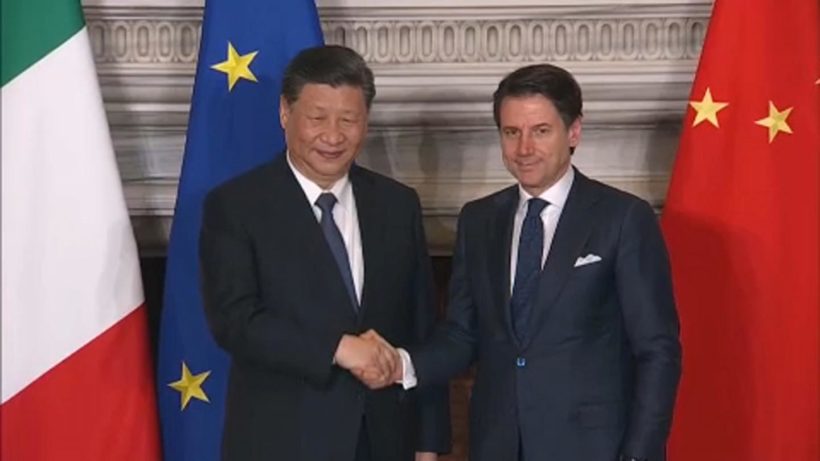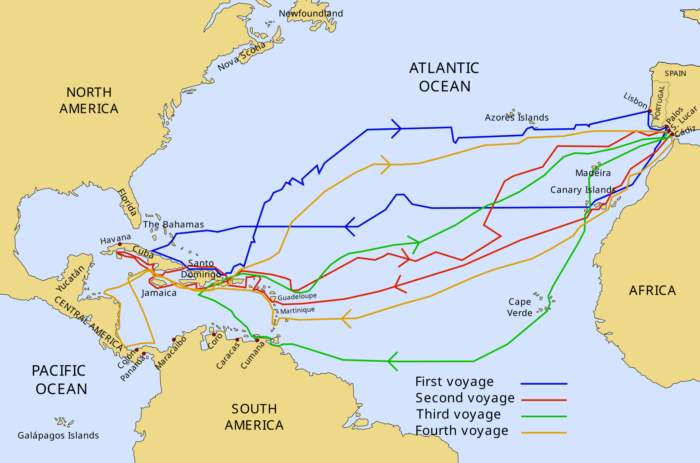
Chinese President Xi Jinping and Italian Prime Minister Giuseppe Conte shake hands at Villa Madama in Rome on March 23, 2019. (Photo: Yara Nardi/Reuters)
redo Jump to...
print Print...
(by The Epoch Times Editorial Board) – Outside China, the spread of COVID-19 has been most severe in Italy, Iran, South Korea, and Japan. Not all of these countries are located near China, but all have extensive interests in the PRC [People’s Republic of China].
Italy, the most heavily affected country outside China as of March 10, was the first (and only) G-7 nation to sign onto the PRC’s Belt and Road Initiative (BRI, also known as One Belt, One Road). In an attempt to prop up its weakening economy, Italy has also sought to capture the Chinese market for selling its luxury goods.
With the outbreak now forcing Rome to put the country under lockdown, such prospects have been put on hold. [On March 9, 2020, Italy’s Prime Minister Giuseppe Conte imposed an unprecedented national quarantine on the entire country–60 million people. On Wednesday, March 11, Italy further ordered the nationwide closure of all restaurants and bars along with most stores.].
Italy also has signed scores of sister-city agreements with China, with the cities of Milan, Venice, and Bergamo included among them. These are the areas hardest-hit by the virus.
In the Middle East, Iran has seen a surge in the number of infections, particularly among government officials.
The Iranian regime has had a comprehensive strategic partnership with China since 2016, and its ties with Beijing began years before that. In violation of international sanctions, Iran has imported embargoed materials from China, while continuing to sell oil to the PRC. The Islamic Republic allowed flights in and out of four major Chinese cities until the end of February.
On-the-ground footage taken by Iranian citizens is reminiscent of the tragedy playing out in Wuhan, with overworked medical staff, despondent patients, and body bags lining hospital floors.
And while official figures released by the Iranian authorities show deaths and confirmed cases trailing behind Italy’s numbers, it is likely that the real scale of the outbreak remains grossly underreported. Reviewing available data, an epidemiologist cited by The Washington Post on March 5 estimated that the actual number of people infected in Iran could have been up to 28,000, nearly five times what the regime had reported.
In South Korea, the public has grown increasingly critical of liberal President Moon Jae-in for refusing to ban Chinese tourists at large and instead only barring entry for those who recently traveled to Hubei Province, the epicenter of the epidemic in China.
More than 1.4 million people have signed a petition to the Presidential Blue House calling for Moon to be impeached. The petition text reads, “Seeing Moon Jae-in’s response to the new epidemic, we feel that he is more of a President for China than Korea.”
Despite its proximity to, and extensive business with, mainland China, Taiwan has seen a relatively small number of infections.
On Jan. 26, John Hopkins University identified Taiwan as having the second-highest risk of epidemic spread outside China. However, robust prevention measures have proven effective.
Taiwan officials began to board planes and assess passengers on Dec. 31, 2019, after Wuhan authorities first confirmed the outbreak. In early February, Taiwan banned entry to foreign nationals who have traveled to [China]. As of March 10, there are just 47 confirmed cases in Taiwan. The self-ruled island has been held as a model for epidemic control, despite being repeatedly denied participation in the [Chinese Communist Party] CCP-friendly WHO. [The World Health Organization (WHO) is an agency of the United Nations.]
As China affairs commentator Heng He put it, Taiwan has a clear understanding of the communist regime and may be the only state that learned the lessons of the 2003 SARS outbreak, which also began in China.
In Hong Kong, which has seen millions of residents stand up to Beijing’s encroachment on the city’s freedoms and rule of law since last year, the outbreak has been similarly subdued.
By contrast, Japan, albeit not geostrategically aligned with China, placed profit over prudence. With millions of Chinese traveling to Japan for shopping and sightseeing annually, the country was slow to close its borders to mainland arrivals.
Recently, the CCP (Chinese Communist Party) has attempted to portray its draconian handling of the coronavirus epidemic as a triumph for the Party’s authoritarian system. But the Chinese historical record is more sobering. Throughout the centuries, plagues and other calamities signaled the downfall of imperial dynasties.
… Today, the world is an interconnected community. Any country, community, or organization that keeps too close to the CCP and falls for its deception will taste the bitter fruits of that involvement.
Published March 11, 2020 at theepochtimes .com. Reprinted here for educational purposes only. May not be reproduced on other websites without permission from The Epoch Times.


